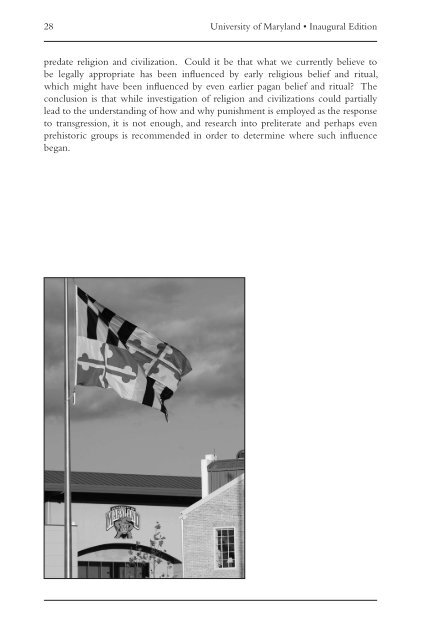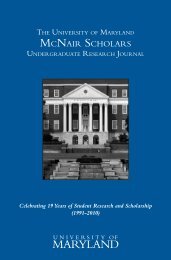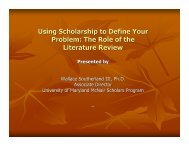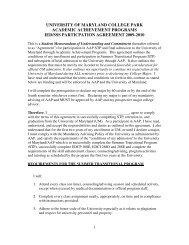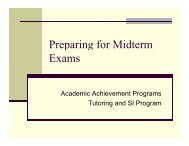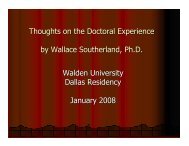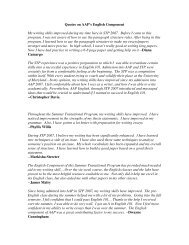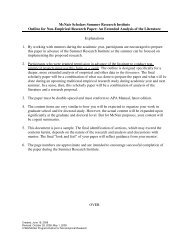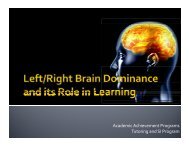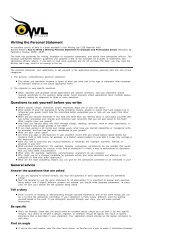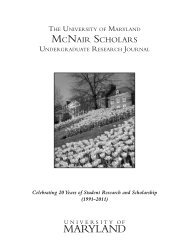mcnair scholars - Academic Achievement Programs - University of ...
mcnair scholars - Academic Achievement Programs - University of ...
mcnair scholars - Academic Achievement Programs - University of ...
You also want an ePaper? Increase the reach of your titles
YUMPU automatically turns print PDFs into web optimized ePapers that Google loves.
28 <strong>University</strong> <strong>of</strong> Maryland • Inaugural Edition<br />
<strong>University</strong> <strong>of</strong> Maryland • Inaugural Edition 29<br />
predate religion and civilization. Could it be that what we currently believe to<br />
be legally appropriate has been influenced by early religious belief and ritual,<br />
which might have been influenced by even earlier pagan belief and ritual? The<br />
conclusion is that while investigation <strong>of</strong> religion and civilizations could partially<br />
lead to the understanding <strong>of</strong> how and why punishment is employed as the response<br />
to transgression, it is not enough, and research into preliterate and perhaps even<br />
prehistoric groups is recommended in order to determine where such influence<br />
began.<br />
Associations between Negative Parenting and<br />
Children Developing Behavioral Problems<br />
Nichelle Newton<br />
Mentor: Dr. Brenda Jones-Harden, Associate Pr<strong>of</strong>essor<br />
Institute for Child Study<br />
<strong>University</strong> <strong>of</strong> Maryland, College Park<br />
Abstract<br />
The purpose <strong>of</strong> this study was to identify whether there is a correlation between<br />
mother’s negative regard and children’s behavior problems. Negative regard can be<br />
defined as mother overtly rejecting their child, blaming him or her for mistakes and<br />
not supporting their child emotionally (Sosinsky, Carter & Marakovitz 2001). A<br />
sub-sample <strong>of</strong> 20 mothers and toddlers young as (ages 0-36 months) were randomly<br />
selected out <strong>of</strong> 120 participants who were enrolled in local Early Head Start<br />
programs. To be eligible to participate in this study, mothers had to meet at least<br />
one <strong>of</strong> the four criteria: scoring high on depression, having three children under<br />
the age <strong>of</strong> five, being reported to child protective services, and being a teenage<br />
mother. To assess whether the mother displayed negative regard, mother-child free<br />
play interaction were coded by using the Parent Child Interaction Rating Scale<br />
(PCIRS) developed by Laura Sosinsky, Alice Carter, and Susan Marakovitz. The<br />
scale ranged from one through seven with one being the lowest level <strong>of</strong> negative<br />
regard and seven being the highest level <strong>of</strong> negative regard. The results indicated that<br />
no significant correlation existed between mother’s negative regard and children’s<br />
behavior problems. Mothers displayed very little negative regard therefore; a<br />
larger sample size may have been needed to observe more variation. For future<br />
recommendations to identify whether there is an association between mother’s<br />
negative regard and children’s behavior problems, a larger sample size maybe needed<br />
to show more variation and more diverse participants maybe needed to see whether<br />
other factors contribute to children having behavior problems other than their<br />
mother’s being from a low socioeconomic group and the mothers meeting at least<br />
one <strong>of</strong> the four criteria.


